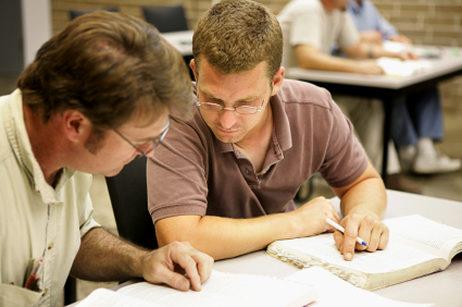In the last decade, community colleges have certainly overcome its wrongful stereotype as “13th grade,” providing invaluable education and training to millions of successful graduates. However, with 20% to 60% of today’s community college students needing remedial coursework, could the stereotype be reinforced once again?
The Problem
Shocking numbers of community college students need remedial coursework
According to Michigan’s Detroit Free Press, experts estimate that about 20% of students at four-year colleges and universities across the nation need remedial coursework of some kind. But at community colleges, “it has been estimated that 60% of first-time students need at least one remedial course.”
This video reports on Black and LatinX students being placed in remedial courses that waste their time/
Remedial coursework is costly for states and for students
The education research and advocacy group Alliance for Education estimated in 2006 that remedial education at community colleges and four-year universities costs taxpayers and students $1.4 billion per year.
Detroit Free Press reports that in the state of Michigan alone, more than $28 million is spent each year on remediation courses at just the community college level.
Students who require remedial coursework more likely to drop out
The Alliance for Education also estimated that the United States economy loses more than $2.3 billion every year due to the higher college dropout rate of students who require remedial reading coursework. An individual who drops out of college has a significantly reduced lifetime expected earning potential.
The Cause
High school curriculum inadequate preparation
An inadequate high school curriculum is likely one of the main reasons that large numbers of students who enter community college are unprepared for college-level work. Students who perform adequately and even earn good grades in high school may still struggle with the vastly different demands of college coursework.
Former West Virginia Gov. Bob Wise, who now heads education research and advocacy group, tells the Detroit Free Press that he has “seen salutatorians and valedictorians go to college and need remedial courses.”
Thus, increasing the rigor of high school coursework is a first step that many suggest in the effort to better prepare students for college-level work. As the Alliance for Education report notes, “a rigorous high school education is a strong predictor of college readiness.”
Schools in crisis
Beyond an insufficiently challenging curriculum, larger problems in K-12 public education may also be contributing to the vast numbers of community college students who require help in the form of remedial coursework. When a class is taught by a series of substitute teachers because of bureaucratic mix-ups, or when high school teachers must try to teach up to 200 students a day because of budgetary shortfalls, a decline in the quality of education that high school students receive seems inevitable.
Possible Solution
Early assessment of high school students
One way to help decrease the number of students who need remedial coursework is to further clarify the skills and abilities students need to possess to successfully complete college-level coursework. According to a report from California’s Legislative Analyst’s Office, when students take college-readiness assessments, they are better able to address gaps in their readiness before they enter a college’s doors.
Community college programs to help struggling students
Some students who require remedial coursework may struggle in part because they have not yet developed the viable study and organizational skills. In an attempt to help their most struggling students, some community colleges are implementing programs that support first-time college students, not only in their academic work but also in practical matters, such as getting financial aid and staying organized about class assignment due dates.
This video explains how students end up taking remedial courses.
The Common Core Standards Initiative
Another way to address the crisis of under-prepared college students may be the new Common Core Standards Initiative. The Common Core Standards Initiative is an effort amongst 48 states to develop national standards for the math and English skills that all students should have when they graduate from a public high school in the United States.
Kentucky recently became the first state to officially endorse the new national standards that have been created. Bob King, president of the Kentucky Council on Postsecondary Education, told Kentucky’s Courier-Journal that the most important goal of the new Core Standards is to ensure that when students get to universities and community colleges, “they arrive without the need for remediation.”
Hopefully, with the new initiatives, the number of students who require remedial education in community college will significantly decrease, giving them more academic time to focus on their major or certification.















